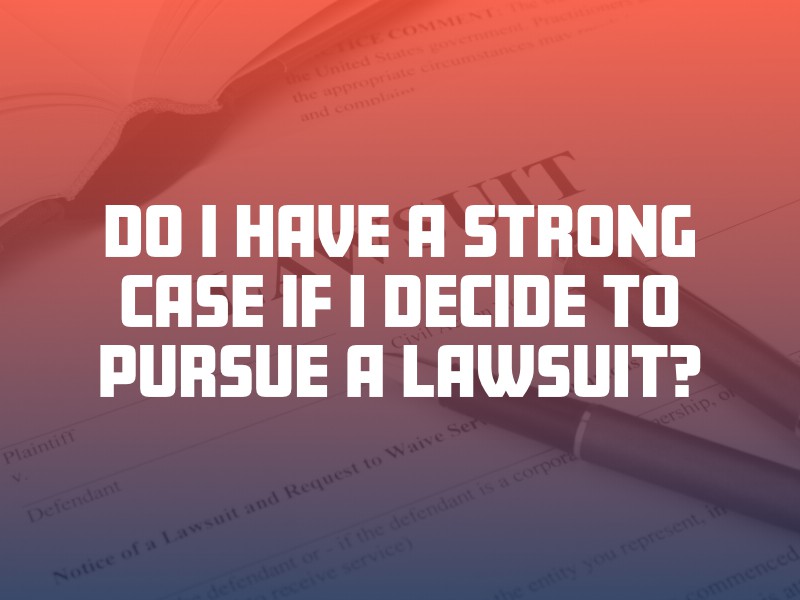An accident in New Mexico can leave you with substantial medical debts, lost wages, permanent disabilities and traumatic emotional injuries. Although a lawsuit will not be able to reverse the economic and non-economic damages you suffered, it may reimburse you for the damages you incurred during this difficult time.

A successful lawsuit could give you the compensation you need to put your life back together and move forward. Before you file a claim, however, find out if you have a strong case. If the answer to any of the following questions is no, your claim might not be worth pursuing. Always discuss your case with a New Mexico personal injury attorney, however, before deciding whether or not to pursue a lawsuit.
Can the Defendant Pay?
First, work with an attorney to find out if the defendant you plan to name in your case is capable of fulfilling a settlement or verdict award should you win your lawsuit. Not every defendant – especially those who are uninsured – will have the money to pay for a victim’s damages, even if a court finds that party civilly liable. Your attorney can investigate the defendant’s resources to verify that he or she has insurance and that the policy maximums on that insurance are high enough to make pursuing a lawsuit worthwhile.
Do You Have All Four Elements?
You might not have a strong cause of action – or grounds for a lawsuit at all – if you do not have all four elements necessary for a claim. Most negligence-based lawsuits require plaintiffs to show proof of four essential elements. If your case does not involve the burden to prove negligence, you may be able to proceed without all four elements. A strict product liability lawsuit in New Mexico, for example, will not require you to prove negligence.
- Duty of reasonable care. The defendant must have owed you a duty of care by law, industry standards, ethical standards or contract.
- Breach of duty. The defendant must have failed in meeting the expected standards of care. A breach of duty could refer to any act of negligence another reasonable party would not have committed.
- The defendant’s actions or mistake must be the reason your accident and injury happened.
- Your lawyer must show that you suffered economic losses (and/or pain and suffering) as a result of the defendant’s breach of duty.
These four elements are the pillars for most personal injury claims, with some exceptions. A lawyer can review your case to see if all the necessary elements are present for a strong claim. In general, your damages should be serious enough to make the costs and time commitment of a lawsuit worthwhile. Most lawyers will not accept low-value claims involving minor injuries only. If the defendant gave you serious or life-altering injuries, however, you could have a strong case.
Do You Have Evidence?
The standard of proof during a personal injury lawsuit is a preponderance of the evidence. This is the lowest standard of proof in the justice system. It holds that the plaintiff must demonstrate the defendant is more likely than not responsible for causing the accident and damages in question. The more likely than not standard still requires credible evidence as to the defendant’s fault for the accident. If you do not have any evidence of the defendant’s fault or negligence, you might not have a strong claim to damages.
Speak to an Attorney
Each injury case is unique. It is impossible to say whether you have grounds for a claim without discussing your incident with an attorney. An attorney will be able to listen to your story and search for signs of negligence. A lawyer can also help you explore possible sources of evidence or identify other defendants liable for your damages on your behalf. If you do have the makeup of a strong claim, a lawyer can represent you during your lawsuit for the best odds of positive results.




